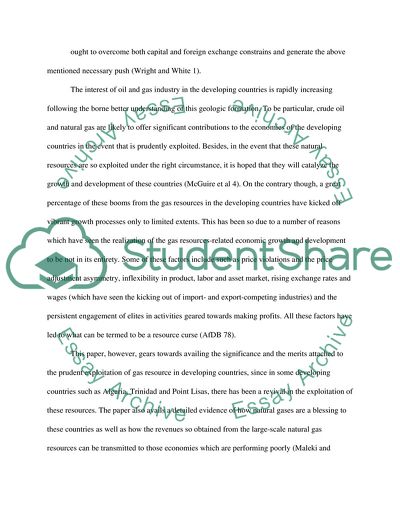Cite this document
(Stranded Gas and Abundant Gas Resources Research Paper, n.d.)
Stranded Gas and Abundant Gas Resources Research Paper. Retrieved from https://studentshare.org/social-science/1783406-can-rural-communities-and-host-developing-countries-be-industrialized-at-a-fast-rate-by-using-stranded-gas-and-abundant-gas-resources-currently-flared-as-part-of-oil-production
Stranded Gas and Abundant Gas Resources Research Paper. Retrieved from https://studentshare.org/social-science/1783406-can-rural-communities-and-host-developing-countries-be-industrialized-at-a-fast-rate-by-using-stranded-gas-and-abundant-gas-resources-currently-flared-as-part-of-oil-production
(Stranded Gas and Abundant Gas Resources Research Paper)
Stranded Gas and Abundant Gas Resources Research Paper. https://studentshare.org/social-science/1783406-can-rural-communities-and-host-developing-countries-be-industrialized-at-a-fast-rate-by-using-stranded-gas-and-abundant-gas-resources-currently-flared-as-part-of-oil-production.
Stranded Gas and Abundant Gas Resources Research Paper. https://studentshare.org/social-science/1783406-can-rural-communities-and-host-developing-countries-be-industrialized-at-a-fast-rate-by-using-stranded-gas-and-abundant-gas-resources-currently-flared-as-part-of-oil-production.
“Stranded Gas and Abundant Gas Resources Research Paper”, n.d. https://studentshare.org/social-science/1783406-can-rural-communities-and-host-developing-countries-be-industrialized-at-a-fast-rate-by-using-stranded-gas-and-abundant-gas-resources-currently-flared-as-part-of-oil-production.


